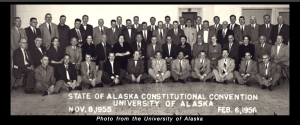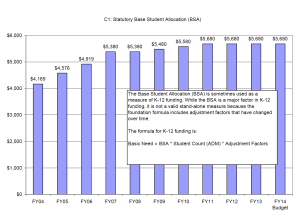For at least a decade we have seen regular papers published in the Journal of Aboriculture and similar publications regarding the damage to urban infrastructure from tree roots (a query on root deflection in Google Scholar will present dozens of items.). Probably the most widely adopted intervention is hardpacking well drained gravel in order to create an environment too harsh for roots. On the other hand, there has been substantially less discussion of trails that fail because of the subsidence of the foundational material on which the trail is placed (in other words, what happens, for example, when you hard pack gravel over deformable substrate.)
In Anchorage we spend hundreds of thousands of dollars resurfacing trails, but as the recent trail bridge collapse evidences, we seem allergic to monitoring and analyzing what lies below the surface. Does that render the people of Anchorage superficial? Well, I will leave that to the politicians to sort out, but in the mean time any rational person might inquire about possible solutions.
Most cracking in Anchorage trails can be differentiated on whether it is latitudinal or longitudinal. Longitudinal cracks, cracks largely parallel to the direction of the trail, produce what Anchorage bicyclists know as alligator cracks. They are almost universally produced as a result of a failure of the material upon which the the trail is paved. Latitudinal cracks, cracks that run across the trail, are almost universally the result of tree roots, though they can also appear as a result of poor design in elevation changes.
As noted, the most widely adopted method to deflect roots may also contribute to an increase in longitudinal cracking, while most deflection is intended to push roots below the trail, which may still result in eventual damage to the trail. I am proposing an alternative that may offer broad benefits; the use of a trapezoidal utilidor.

No, this is not a covert Maths lesson. To the left you will see an isosceles trapezoid. Note that the sides both angle up. This means that any the trapezoid will reflect up anything that approaches it.
A utilidor is essentially a small underground tunnel. In this case I am proposing a continuous utilidor (composed of interlocking sections) with a trapezoidal cross section; think of a storm drain that isn’t circular.)
The result is an underground system that can be easily used to manage water (which is often problematic in Anchorage with the change in seasons) but can also be used to host things like fiber optic cabling. It is impervious to flora because roots are deflected to the surface (no threat of shallow or deep disruption of the trail) and based on its rigidity and its locking nature, puts an end to longitudinal cracking.
The utilidor could be produced locally of concrete or even cast out of the tons of glass that Anchorage produces (glass is very strong and durable.) A paving base of greenboard or similar material can be placed on the utilidor depending on its composition to shield the utilidor from paving activities. The sections of the utilidor could be produced as a single extrusion, or built up of 2 or 3 interlocking section (for example, one could have center sections of varying widths to be sandwiched between the same triangular sections.)
Utilidor sections could be manufactured in Alaska and then sold not only in Anchorage but elsewhere in the state. They could be engineered to support target loads (for example to support a 15000 pound truck and equipment.)
Installation will be a bit more expensive as it will require removal of more material than has been the practice with use of crushed gravel, though the height of the trapezoid could be adjusted based on testing, development, and specific application.
Yes, the initial costs would likely be greater than they are now, and yes, I have to acknowledge that Alaskans are typically allergic to investing in infrastructure, unless we are talking a bridge to nowhere, or a development that will raise the value of a politician’s investment, but if you are tired of whining about the poor condition of the traisl, and about being unable to use the trails every couple of years because they are in such a shambles, then maybe you should consider whether the folk in charge at present need an opportunity to work somewhere else?
 Told, “take two aspirin, ponder why Emerson is like a hotdog and call me in the morning”, my correspondent snapped back, “
Told, “take two aspirin, ponder why Emerson is like a hotdog and call me in the morning”, my correspondent snapped back, “



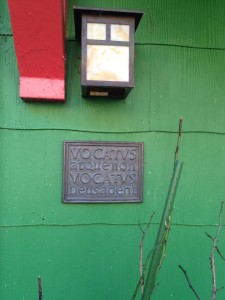
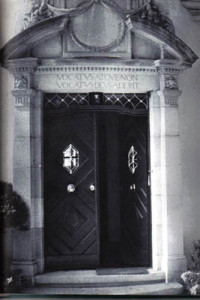
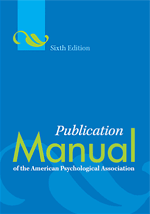 I recently had a tutee complain bitterly about an teacher marking down papers because the papers did not comply with the instructors perspective on a particular style manual. It is not the first time for pompous declarations on all manner of style issues, and this time, I though I would follow through and pose the question presented to the style experts at the APA.
I recently had a tutee complain bitterly about an teacher marking down papers because the papers did not comply with the instructors perspective on a particular style manual. It is not the first time for pompous declarations on all manner of style issues, and this time, I though I would follow through and pose the question presented to the style experts at the APA.